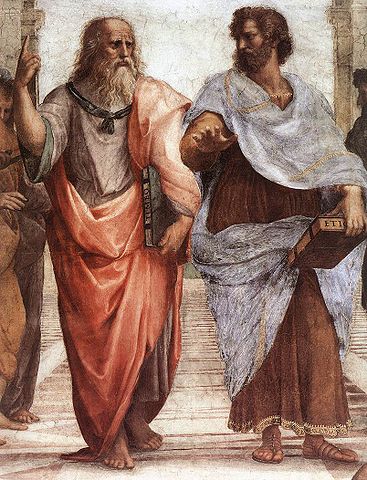When I was taught about Aristotle and Plato, the picture I got was very much like this image from a Raphael fresco:

Usually Plato is said to be pointing to the heavens, which represent abstract Forms, while Aristotle gestures to the Earth (or possibly breaking the fourth wall and indicating the viewer) to symbolize his commitment to Empiricism. Certainly in an epistemological landscape dominated by Pythagoras and Plato, Aristotle emerges as practically David Hume in relation.
But reading Aristotle directly and especially the book he is shown to be holding in the painting (Ethics), I find Aristotle's epistemology to be far more balanced. While he certainly prefers inductive arguments when he can make them, he isn't reluctant to argue deductively from a priori principles that we might not agree with. In fact another popular characterization of Aristotle is that his philosophy held back science by insisting on claims that were not evident in nature. Some of these claims (such as heavier objects falling faster than light ones) could easily have been rejected with very straightforward experiments.
So ought we to think of Aristotle as a man who was born two thousand years too early to be a part of the scientific revolution or as a man who wished to moderate Platonic dogma?
